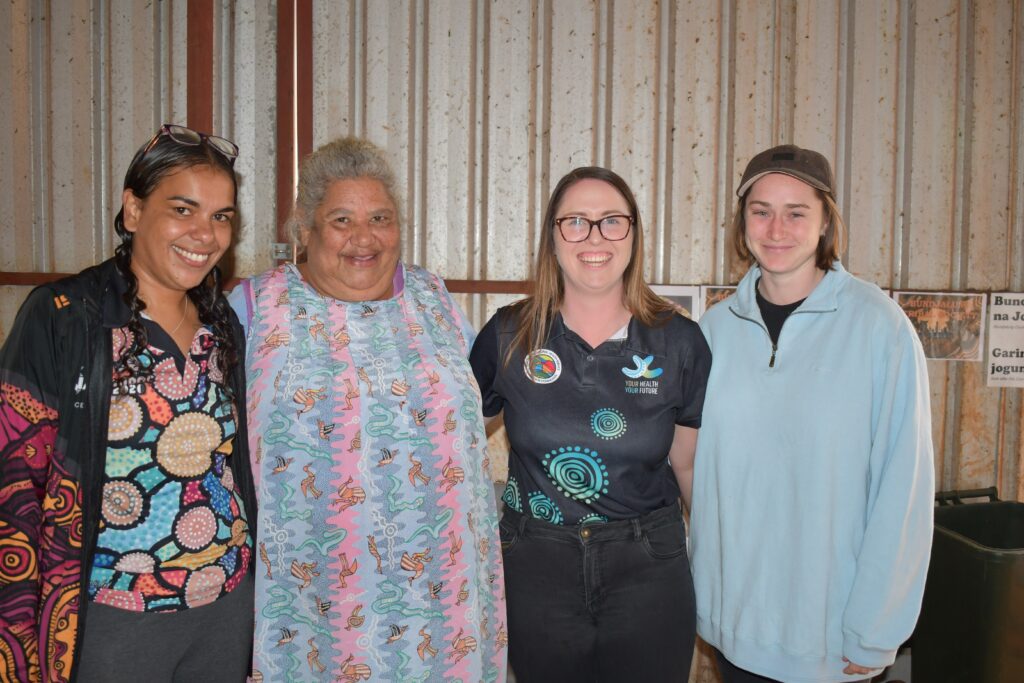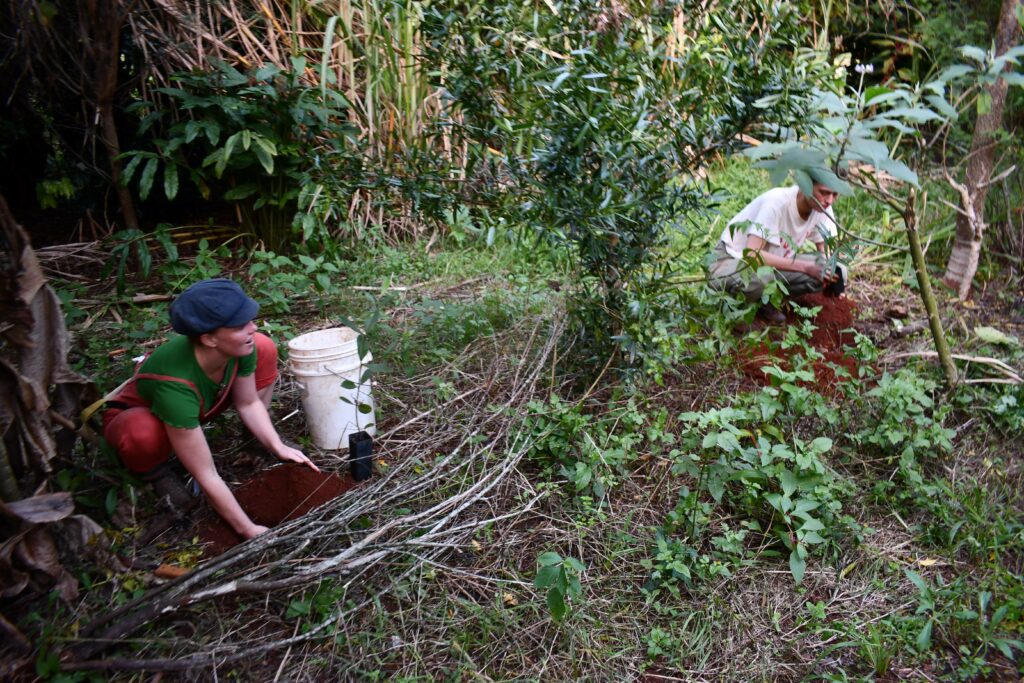Foundation for Rural & Regional Renewal (FRRR)
With support from a variety of generous supporters including The Sally Foundation, Seaton Foundation and Bunnings Warehouse, FRRR awarded $36,000 via six grants to not-for-profit community organisations in and around Lismore for a variety of projects aimed at supporting local youth.
The FRRR ABC Takeover Youth Catalyst Grants support communities to take action on the ideas generated by regional youth at the annual ABC Takeover Regional Summit. The annual Takeover Summit provides local students with a platform to speak up and have their voices heard on issues that matter to them within their own community.
The grants provide a mechanism for these ideas to become reality in their community, with project delivery intended to establish a greater connection between youth and community organisations; support youth to drive change in their community by backing their ideas; and ensure that young people are valued for their contributions and time.
| Organisation | Project | Location | Grant |
|---|---|---|---|
| Connect Northern Rivers Inc | Destine Create a film at the Connect Northern Rivier Career Expo to showcase local career pathways, increasing awareness and opportunities for young people in Lismore. | Lismore, NSW | $6,000 |
| Lismore City Council | High Schoolers' Haven Launch a youth-led pop-up event space in Lismore to foster social connections, support, and skills development for Lismore youth. | Lismore, NSW | $6,000 |
| Our Plan C Inc | NexGen Navigators: Trash Talkers Equip local youth with the skills to lead their own youth-led environmental projects to activate their environmental awareness and comunity resilience. | Lismore, NSW | $6,000 |
| Nimbin Neighbourhood & Information Centre Inc on behalf of Nimbin Youth Events | Youth Fest Create a youth-led festival that empowers young people to showcase their talents and develop event management skills to foster community connections. | Lismore, NSW | $6,000 |
| The Tropical Fruits Inc | StandUp StandOut Implement workshops to empower Lismores diverse youth through art, fostering self-pride, community connectinos and improved mental health. | Lismore, NSW | $6,000 |
| Creative Peoples Collective Inc | Culture Peoples Collective Empower youth through artistic workshops and events, fostering skills, self-expression and community cohesion. | Lismore, NSW | $6,000 |
More than 30 school-aged students will ‘takeover’ Lismore from 20 May to 24 May to share their stories as part of the ABC’s Takeover Youth Summit.
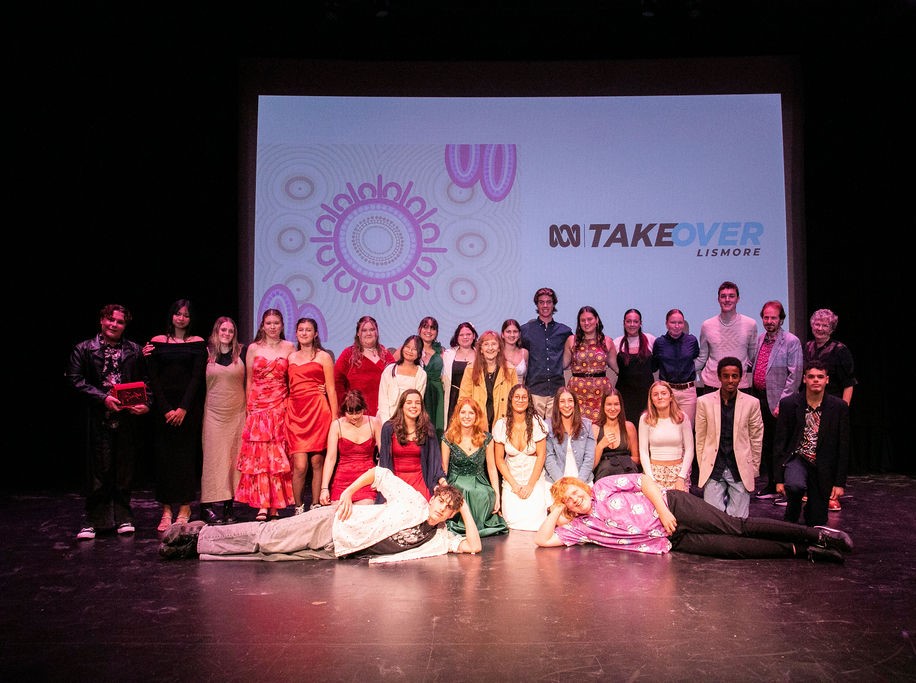
The Summit is a partnership between the ABC, the Office for Youth; Department of Employment and Workplace Relations and FRRR.
Thirty-four students have been selected to have their stories and ideas featured on the ABC during the Summit and beyond. The winning stories showcase the diversity and bravery of young people in the region.
To further back these ideas, FRRR will be offering support to community organisations to adopt and adapt the ideas developed by Summit participants.
Natalie Egleton, FRRR CEO, said, “FRRR is inspired to be part of their journey and to invest in the local community so young people can have a powerful say in the future of their region.”
Takeover Lismore winners will be featured across the ABC during the week of 20 May 2024.
To read the full media release and find out more information about the program please visit: abc.net.au/takeover-lismore.
Youngman Creek rehabilitation volunteer wellbeing program
The Namabunda property, situated in what was once the Big-Scrub subtropical rainforest covering over 75,000 Ha of the Northern Rivers, has degraded over the past 30 years – since its days as a lychee farm due to a lack of maintenance.
Bundjalung Tribal Society (BTS) is primarily a housing organisation providing social housing for the Aboriginal community in and around Lismore in northern NSW. They inherited the property and have spent many years, with volunteer support, trying to rehabilitate it to use for cultural activities and ecological preservation, planting bush tucker and medicines, running training and capacity building programs. Despite their efforts, setbacks like bushfires and the COVID pandemic have hindered progress. Community engagement, vital for sustaining the project, has waned due to volunteer fatigue and lockdown restrictions. BTS see the degradation of the Youngman Creek on the property as symbolic of the broader environmental and social challenges facing the community.
The group sought funding to help mobilise the community and resource them with support and infrastructure, expert training and capacity building to rehabilitate the Creek.
“By rehabilitating the creek, we rehabilitate ourselves and our community.”
With a grant of $9,997, supported by GlobalGiving, the group hosted a series of events at Namabunda which attracted significant community participation, including:
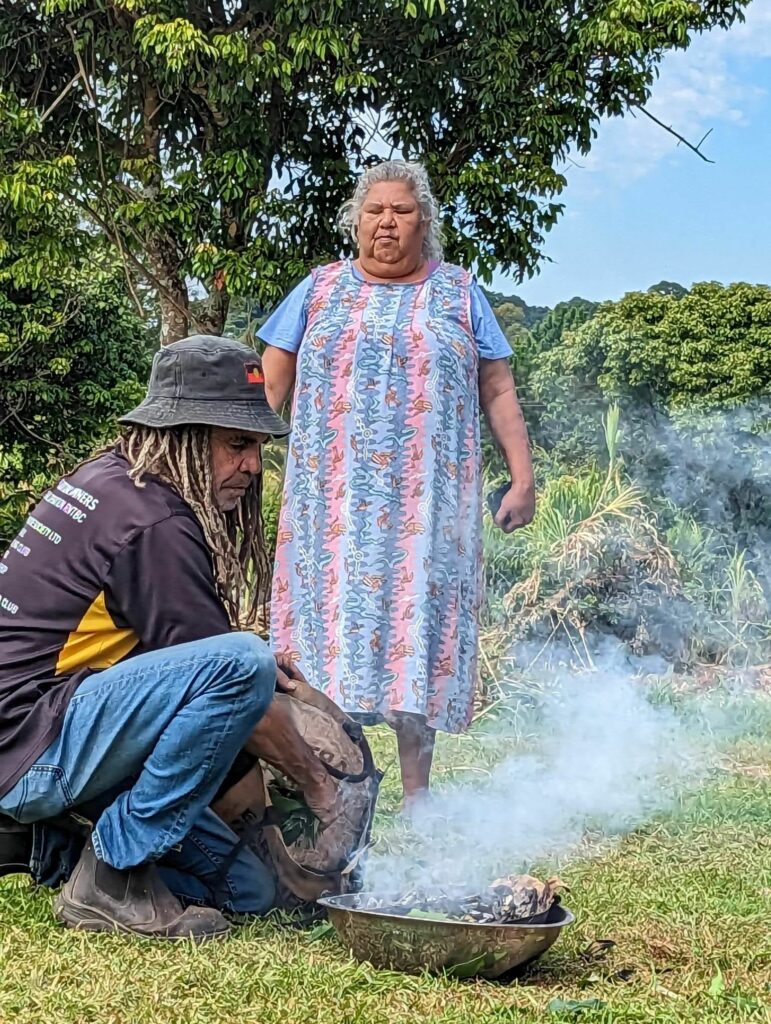
- Build community cohesion through shared activities and cultural workshops.
- Provide training in bush regeneration and ecosystem management for volunteers, especially in photographic monitoring of weed removal and tree planting;
- Offer wellbeing support and workshops led by qualified counselors to address the emotional toll of recent challenges.
- Deliver Bundjalung cultural and ecological knowledge workshops, installing didactic signs about the work to increase awareness and use of Bundjalung ecological knowledge and language, and explaining and demonstrating the value of a healthy waterway ecosystem to neighbouring landowners.
These events will integrate practical activities, such as weeding and planting, with educational sessions on assisted native regeneration techniques. A focus on the Youngman Creek watershed aligns with the project’s theme of “renewal” and underscores the interconnectedness of environmental and community resilience.
Moving forward, Namabunda serves as a model for holistic, community-driven land management that nurtures both people and the environment.
“The thing we are most proud of is the sense of belonging and identity that we have generated through this project in response to the fires, pandemic and then the floods. The thing that was most successful is the deeper engagement between Bundjalung people and non-Indigenous people. The connections that we have built up over the last 18 months is really beautiful to see”.
Yarning and other culturally-informed models of health can support people in the community to explore factors that impinge on social-emotional wellbeing (SEWB) and co-create solutions for individual and family wellbeing, including young people.
(Murrup-Stewart et al, 2021)
The Northern River Community Healing Hub is a network of local Indigenous and non-Indigenous volunteers who practice a range of culturally informed trauma-integrated healing modalities including weaving circles, art therapy and bodywork (massage). The hub was established following the catastrophic 2022 flood event in the Northern Rivers.
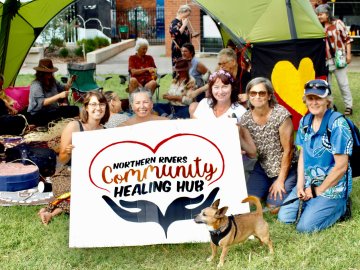
They received a grant for $24,570 through the Rebuilding Futures program, funded by the Suncorp Group to support the hub practitioners to grow and develop their work through increased service delivery moving from an entirely volunteer model to a hybrid paid / volunteer operation. NRCHH is available to all people, regardless of cultural background with a focus on their target population: Aboriginal and Torres Strait Islander people, children and young people, families, including older people. The project also included Mobile Hub operations to enable better access to the service within communities themselves – where they need them most, and in consultation with community.
The healing practice activity funded by the project has directly benefitted 639 people across the community at outreach to the pod villages of Coraki and Lismore, and tents at the Nimbin Aquarius Festival and Murwillumbah Kinship Festival, and workshops for a Queer Flood Recovery Event and an event for school children. In addition there have been weekly sessions at the Healing Hub including: 15 bodywork sessions per week free to the community; free flowing drop in weaving / yarning circle on Wednesdays; and clay art therapy once a week.
The NRCHH has evolved through the project. The paid / volunteer mixed model has been successful and they are now seeking input and collaboration that will deepen partnerships and relationships with the organisations that they currently work with to continue.
Project Manager Ruth Rosenhek said, “At the Healing Hub, we provide a de-clinicalised, informal soft-texture gentle space to support healing for our community that focuses on the whole person including a phenomenally successful bodywork program that runs alongside cultural activities such as weaving and yarning circles, creative arts and community connection. We have found that 18 months past the 2022 flood events, people continue to be managing high levels of stress and trauma. These cultural activities that involve sitting on country, slowing down the pace, connection and belonging are all powerful healing agents.”

